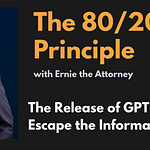This is a NotebookLM ‘audio summary’ discussion of a recent Wired Magazine article that examined the effectiveness of CyberCheck technology. The article concluded this technology is highly questionable.
What is CyberCheck?
It’s a system that supposedly can geolocate people in real-time or in the past using only open-source data. A review of investigations involving Cybercheck suggests it’s much less effective than advertised.
Key Takeaways
Cybercheck has provided evidence that is either demonstrably incorrect or unverifiable. For example, in the Phillip Mendoza case, Cybercheck placed him at the scene of a shooting on the wrong date with a 93.13% accuracy rating. A subsequent report corrected the date, but all other details, including the accuracy rating, remained identical, raising concerns about the system's reliability.
Open source intelligence experts believe Cybercheck's claims are impossible. They argue that much of the information in Cybercheck's reports, such as when a device pinged a specific wireless network, would be impossible to obtain using only open source data. This data typically requires a search warrant to access.
Global Intelligence has not provided sufficient transparency about Cybercheck's methodology. The company has not disclosed who designed the algorithms or what data was used to train them. Additionally, Cybercheck does not retain supporting evidence for its findings, making it difficult to verify its accuracy.
Law enforcement agencies have reported mixed experiences with Cybercheck. While some agencies have found the technology beneficial, others have reported receiving inaccurate or unverifiable information. Some agencies have chosen to stop using Cybercheck due to its lack of accuracy.
Overall, it seems Global Intelligence's claims about Cybercheck's capabilities are overstated and need to be subjected to strong scrutiny.
Your Thoughts?
What are your thoughts about this situation?









